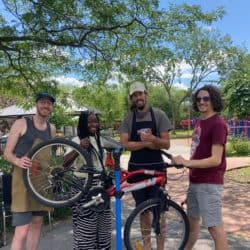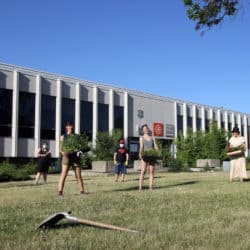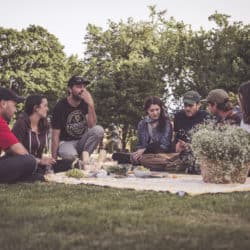Vélorution’s leaders and volunteers believe that bicycles can transform lives. They want to drive a bike revolution by providing participants with bikes and teaching them how to ride and repair them.
Non-profits tackle big problems: poverty; inequities in health, education, and work access; sexual and racial discrimination; refugee crises; food insecurity; community development; et cetera. But a cross-cutting challenge calls for their contribution at another level: the climate crisis. In our Mission Transition series, contributor Diane Bérard examines why non-profits and civil society groups should make the socio-ecological transition a core driver of their strategy, how to do it, and how funders can help. She spoke with seven organizations with very different missions, all contributing to the transition in their own way.
The democratization of cycling is a key part of the transition for urban areas. In our sixth Mission Transition profile, we look at Vélorution, a program whose leaders and volunteers believe that bicycles can transform lives and want to drive a bike revolution by providing participants with bikes and teaching them how to ride and repair them.
Vélorution (Montreal, with a few projects across Quebec)
Rémi Laurent, executive director
Mission: to develop cycling as an active means of transport and an empowerment tool
What is Vélorution?
Rémi Laurent: Vélorution is a project from Cyclo Nord-Sud, a non-profit created in 1998 with a double mission. First, we collect and repair bikes in the Global North and send them to southern hemisphere countries. Our motto is “Recycling bikes, transforming lives.” Over the last 24 years, we have sent more than 62,000 bikes to 22 Latino and African countries. Second, we are driving a bike revolution. We call it “Vélorution,” just like our local bicycle empowerment project. Our founder, Claire Morissette, was a pioneer of the cycling movement. She believed bikes could transform lives; Vélorution proved it by teaching citizens to ride and repair their bikes themselves.
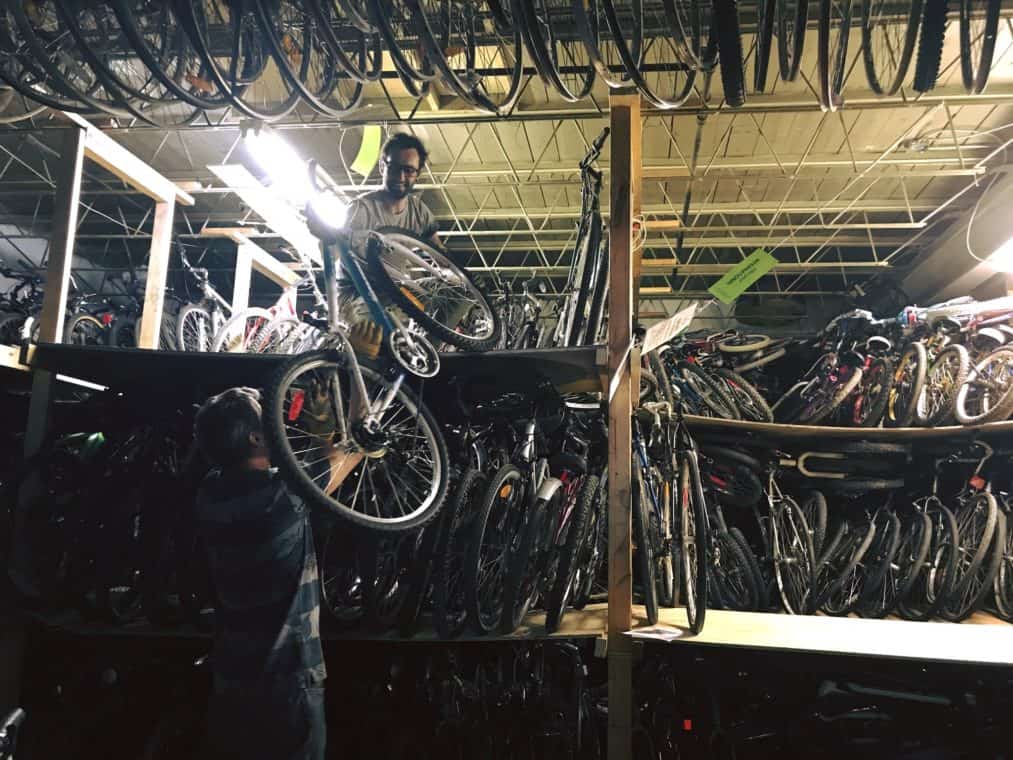
What is your definition of the socio-ecological transition?
RL: It is a fresh look that allows new behaviours. Citizens become aware that they have the power to choose the future.
How does Vélorution contribute to this transition?
RL: I will give you the practical and the philosophical answer. Cycling is an ecological transportation mode, and since our bikes are secondhand, we also reduce waste. But cycling also allows you to explore beyond your neighbourhood and possibly open your mind. Teaching mechanics is part of the “do it yourself” spirit we need to transition: consume less, extract less, and generate less waste. And there’s the ripple effect: when you can repair, you can help others. In the end, Vélorution contributes to the transition by democratizing cycling. If we stop seeing it as a hipster or an athletic hobby, it might help to catalyze other transition initiatives. And last but not least, to dedicate your energy toward societal change, you need to feel connected to others. Cycling gets you closer to others and your environment, physically and philosophically.
The Vélorution project almost didn’t happen. In January 2020, Cyclo Nord-Sud considered closing. What happened?
RL: For decades, Cyclo Nord-Sud had mainly one source of funding: international aid programs. Over the years, that source dried up. In January 2020, our debt level left us with two choices: to close in an orderly manner or to invest. The board chose the latter, judging that our mission was in tune with two significant societal challenges: income inequalities and the climate crisis. Before making a new start, significant cost-cutting was voted for. We went from six to two employees – including me, when my status changed from board member to general manager. The other employee was a volunteer coordinator. Volunteers are the life and blood of Cyclo Nord-Sud and its Vélorution program; we have hundreds of them all over Quebec. Therefore, a volunteer coordinator is a strategic investment. Its mandate is to empower volunteers so their actions can generate maximum impact.
When did Vélorution launch its first activity?
RL: During the summer of 2018, our mobile repair shop visited various parks in the Saint-Michel borough [in Montreal]. Parks are perfect for our action. Kids like Andès and his little brother, Yassien, came to us with broken bikes and left smiling! Caroline’s bike was just fine, but she is the kind of person who wants to know how things work. Thanks to our mechanic classes, her bike has no secrets for her anymore. Assia longed to explore her neighbourhood, but she had no bike and no one to teach her how to use one. Things changed after four sessions with our volunteers. Her new skill gave her pride and autonomy. Moreover, she became a role model for her girlfriends.
What happened after that first summer?
RL: We knew we were onto something, so we aimed for a permanent repair shop in Saint-Michel. On November 18, 2018, we opened the district’s first community bicycle workshop: the Atelier Vélorutionnaire Saint-Michel (AVSM). Its mission is to promote Saint-Michel citizens’ empowerment and develop the cycling culture. In 2019, we got municipal funding to deploy a similar mobile repair shop in Côte-des-Neiges, a borough that shares socio-economic similarities with Saint-Michel. Unfortunately, both have weak biking cultures, and their citizens spend too much of their budgets on their cars.
Vélorution has three pillars. What are they?
RL: We give access to free bicycles. We repair bikes for free and teach citizens to do it themselves. And we teach women cycling skills. In addition, our volunteers get very creative in finding bikes to donate. For example, every Friday a collaborator visits the eco-centre [where people get rid of electronic and construction waste and other unwanted goods – including bikes] in Saint-Agathe, a small Laurentian town. Once he repairs the bikes collected, they are distributed to the local population. The same goes for a retired garage owner; he, too, diverts eco-centre bicycles and gives them a second life. I love this story because it deconstructs the car-versus-bike stereotype.
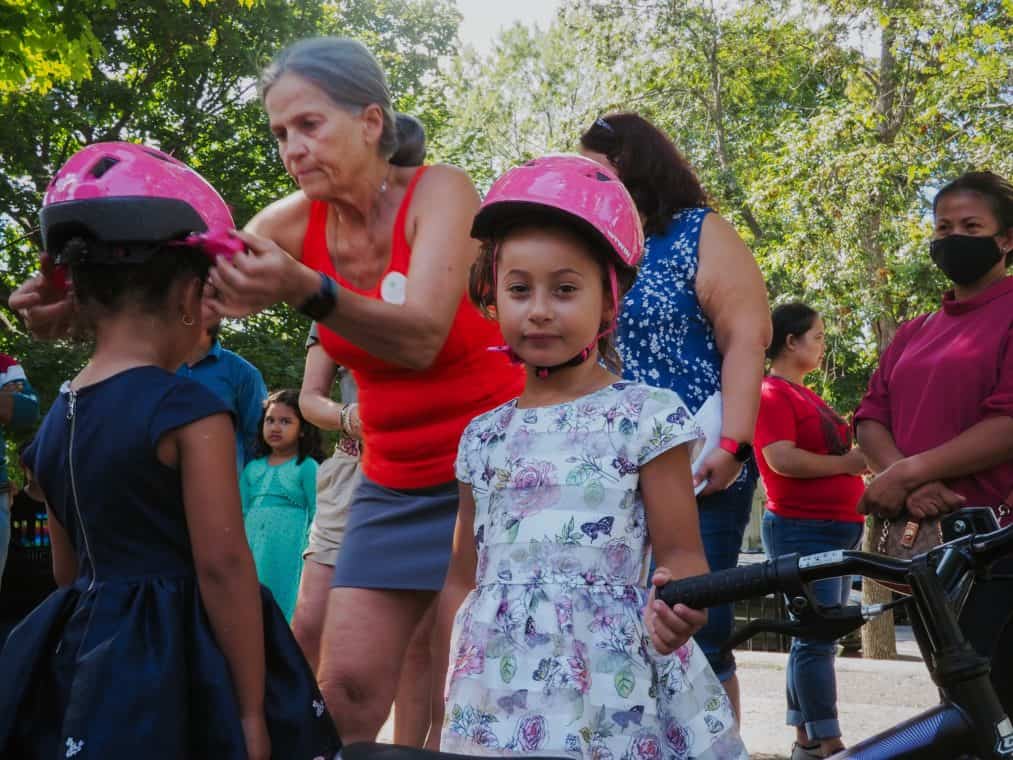
Tell us more about your women’s program.
RL: We are one of Vélo Québec’s partners for the Toutes à vélo gender-equity initiative. We teach women cycling so they can use it as a means of transportation or as a hobby. Thus, mothers can bike with their kids and feel more secure when they bike alone.
You are a pro bono pro. Over the years, Cyclo Nord-Sud has benefited from many collaborations …
RL: Yes, and this professional help made a real difference. We were coached through redesigning our workshop, managing our inventory, and finding our “why.” We got introduced to design thinking and the 5S of lean that results in a clean, uncluttered, safe, and well-organized workplace to help reduce waste and optimize productivity. This summer, HEC Montréal [business school] students will help us develop our theory of change. I keep my antennas tuned for all the help I can get!
What is your next step?
RL: In 2022, we would like to deploy Vélorution in other neighbourhoods. Our method is simple: we test citizens’ needs, create a pilot project, and train volunteers to transfer the initiative. We do not want to be an operator because we believe in customization. Vélorution needs to be tailored to boroughs’ specificities.
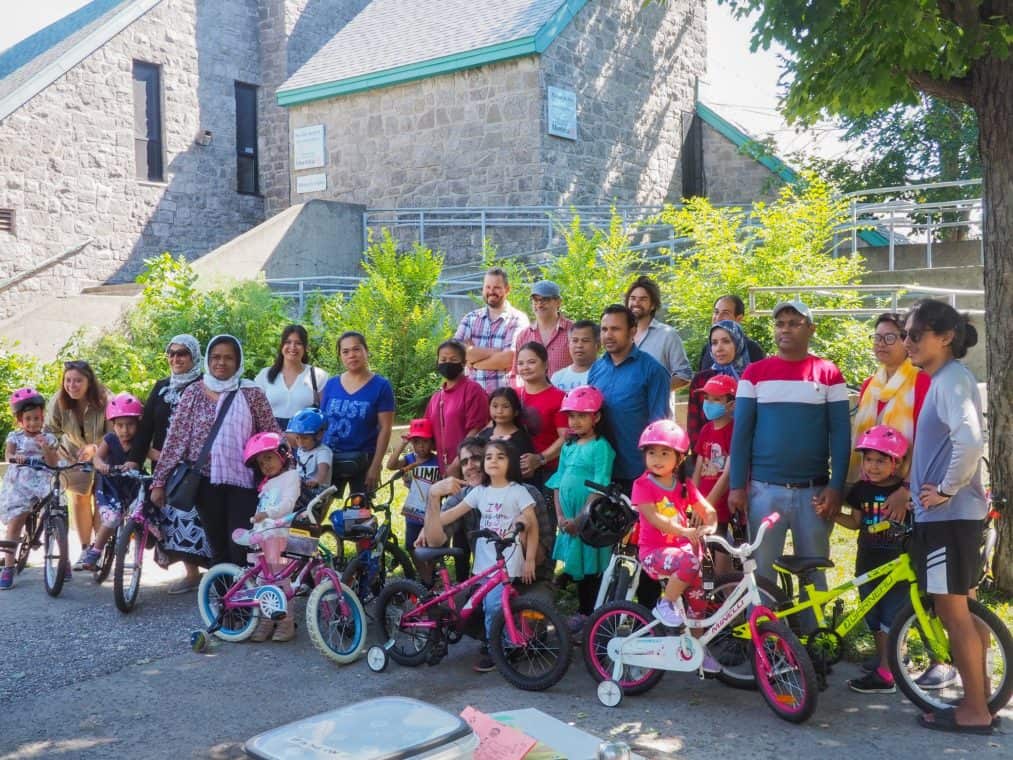
Vélorution is part of Maison de l’innovation sociale’s Civic Incubator fourth cohort. Can you explain what that is?
RL: The Civic Incubator program aims to prototype and bring to maturity ideas for projects with social and environmental impact imagined by engaged citizens or groups. As part of the fourth cohort, Vélorution gets approximately seven hours of coaching a week from January to June 2022. That should help our program get ready to scale.
How could Vélorution’s mission fit into foundations’ programs?
RL: I see many touchpoints. Foundations working with girls’ and women’s empowerment could see a natural fit with us, just like foundations targeting families or health issues. And I know many foundations target communities’ resilience – our mobile repair shops become informal gathering places.
What is your specific need right now?
RL: I would like to collaborate with a university to measure Vélorution’s impact. We need to develop relevant performance indicators.
